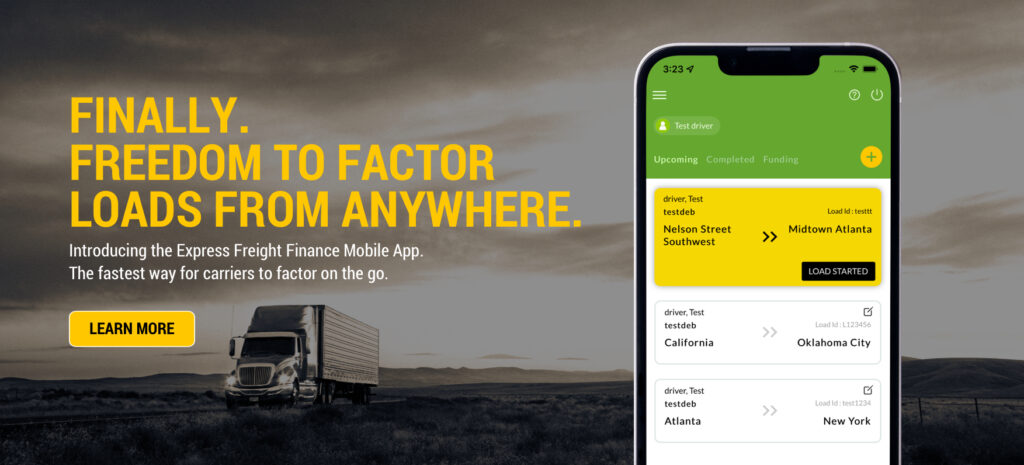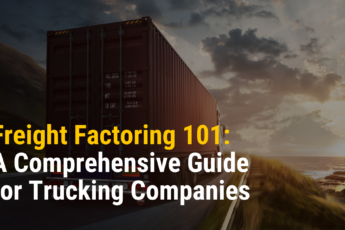Trucking is the lifeblood of the American economy, accounting for more than 72.5% of the freight transportation across the country. With more than 3.3 million drivers, and 7.6 million people employed directly or indirectly by the trucking industry, it plays a significant part in the US job market.
At the heart of this industry are the truckers who are continuously looking for the loads to keep their trucks on the roads.
How truckers find loads
There are a variety of methods that truckers can use to find loads to haul. They can also use a mix of the following methods to find the best pay-outs and preferred routes throughout the United States:
The #1 Way to Find Loads: Load Boards
A load board is the most widely used method to find a load of your choice and preference. There are hundreds of free and paid options for digital load boards with thousands of loads on the marketplace.
Both shippers and brokers can post available loads, and oftentimes load boards allow truckers to post about their equipment, route, and types of trucks. Truckers can also call the brokers for further information and rate negotiations.
What is a load board and how is it used?
A load board is an online marketplace that enables shippers and brokers to post available loads and find the right carrier for the job.
Think of it as a matching system, similar to a dating site, that allows the carriers to find the most profitable loads to keep their truck on the road and maximize their earnings.
With this online platform, carriers will typically buy a subscription to search for thousands of load options in real-time. You can also post your empty trucks along with other information, such as the type of truck(s) you have available.
Brokers and shippers can reach out to you with follow-up information or you can contact them directly for a posted listing of a load. A load board also allows you to communicate about the specific load and negotiate on price. Many load boards also help the truckers to check the reviews and credit scores of a particular broker or shipper.
Are load boards worth it?
Load boards are widely used in the US trucking industry to move freight across the country. With roughly 97% of carriers operating 20 or fewer trucks, load boards are certainly worth exploring. This is especially true if you’re just starting your own trucking business, are an owner-operator, or own a small fleet.
For New Owner Operators
If you’re a new trucker owner-operator, using a load board can help you grow your business and find new business partners.
The trucking business heavily relies on networking and relationships, whether that is with a broker, shipper, or fellow truckers. Load boards can assist you in expanding your network, establishing new relationships, and staying up to date with the rates, news, and the latest trends in the industry.
There are hundreds of real-time listings available on load boards you can choose from. It also puts you in control, as you can tell the broker about where you are and what your destination is to find freight along your preferred routes.
According to The Economist, an average truck driver drives 28% of their total mileage without a load on a return trip. Better networking with the brokers through a load board can significantly reduce this downtime and help you make more money with your truck.
Top 5 Load Boards
There are plenty of load board options in the market with both free and paid monthly subscriptions. We’ve compiled a list of the top five load boards with powerful features to find your next load.
Here are some of the best load boards for truck drivers, owner-operators, and brokers:
- DirectFreight
DirectFreight is both a trucker and broker-friendly load board packed with every feature you might need in the trucking business. It provides easy, location-based search options for loads as well as trucks.
As an owner-operator, you can look at the credit score, bond, authority, and insurance information of a broker. DirectFreight also lets you store and send documents, show load bookings, and even see the average number of days to pay. Other useful features include weather reporting, text and email alerts, and audible app notifications to tell the carrier about newly available loads. It also provides integration with the transport management software provider TMW systems.
You can get all these features at $34.95 per month. However, Express Freight’s MarketFIT users get access to DirectFreight Premium for free. - TruckStop
Truckstop is known for its large number of registered brokers. Basic membership starts at $39 a month for the carrier and $99 for both the broker and the shipper.
With a large community of brokers, shippers, and carriers, you can find loads quickly and easily. To unlock all of the features, you’ll need to purchase their Pro version with the real-time load board option for $149 per month. - DAT
DAT offers a state-of-the-art live load board with multiple search options and filters to refine your search for a load.
This load board also shows pricing details for each load, helping truckers negotiate a fair price. On average, there are over 800,000 new listings each day on DAT. - 123Loadboard
123Loadboards is an industry leader for load board solutions, with over 50 million truckloads posted annually.
In addition to a paid membership with unlimited load searches and live notifications, 123Loadboard offers a free load board app and a 10-day trial of its premium features.
The app also offers comprehensive search options and reporting tools for truckers at a starting cost of $35 a month. With their highly-rated mobile app, you can find available loads anytime and anywhere. - Trucker Path
With more than 800 brokers and 150k+ loads per day, Trucker Path provides a mapping and navigation mobile app for truck drivers.
The free platform lets you check the broker’s credit score and find the closest truck stop, available parking, weigh stations, fuel stops, trip planning, and truck-safe routing. You can use the Trucker Path app or the web version to find the load of your choice.
When to use a broker vs. sourcing loads independently
Outside of load boards, you may be curious to source your loads through freight brokers. In short, freight brokers arrange for the transportation of freight for direct shippers.
With consistent ties to shippers and multiple load options, freight brokers can help kick start your carrier business. They also do the legwork and negotiation on your behalf with the shipper, which can help you focus on your job when you’re just starting or expanding.
Building a strong relationship with your broker is critical. As with any contract or agreement, it’s also important to set clear terms with your broker and look out for any hidden fees or charges.
Once you gain a certain amount of experience and industry knowledge and your business is already up and running, you can look for options other than a broker.
There are plenty of ways to find a load for your trucks outside of freight brokers, including freight factoring, becoming a government contractor, brokering your own deals, and networking with other small carriers or truckers for referrals.
Establishing a direct relationship with shippers
Hauling loads directly from the shippers (or customers) might sound tempting because you can save the commission of the broker. However, this also means it’s up to you to find, negotiate and sell to the shippers yourself. This process takes a lot of time and hassle to build relationships and negotiate rates with the shipper.
You also need to build relationships with multiple shippers to guarantee a load on your way back from the destination to prevent the dreaded deadhead miles.
Most shippers award the shipping contracts through bids which are generally available for larger carriers and fleet owners. Large shippers also require the Transportation Management System (TMS) systems with EDIs and APIs.
If you have a single truck or a small fleet, this might not be an ideal option for you.
Freight Brokers
Freight brokers offer their services to find and broker deals with the shippers and the carrier/owner of the fleet for a commission.
Relationship matters a lot in the trucking business. A good working relationship with the broker helps you find the best deals at any given place and time. Some of the large shippers also prefer to work with freight brokers because of their huge network of truckers and carriers across the country.
Digital Freight Matching Apps
Digital freight matching apps ease the process of finding loads with a set rate for each haul.
Drivers can accept the published jobs at a fixed rate without the hassle of negotiations. This process eliminates the need for back-and-forth negotiations, saving both parties time. The downside is that you may not earn as much as you would without the fixed rate.
According to a 2019 study by FreightWaves, carriers surveyed say that they only source 11% of their freight from freight matching apps.
Despite the rise and focus on Direct Freight Matching Apps, the most popular method for sourcing freight for carriers running one to three trucks continues to be directly from freight brokers, shippers, and load boards.







